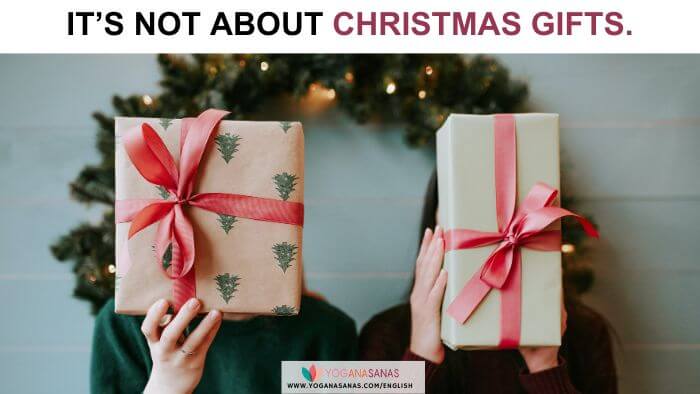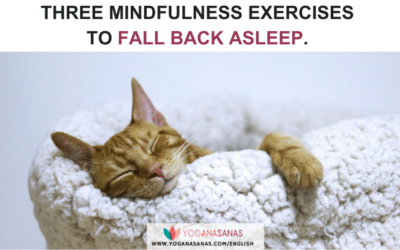It’s not about Christmas gifts
December 25th is around the corner and for those who follow this tradition, it will probably be the day when Christmas gifts are exchanged.
Honestly, I have never been a big fan of this tradition. Gathering together with loved ones brings joy and new memories to look forward to. And, at the same time, giving and receiving presents has never been very appealing.
I’m pretty sure I belong to that bunch of highly sensitive people who tend to feel stressed about all the logistics around Christmas gifts.
For years when Christmas came, I felt overwhelmed at actively participating in a tradition that did not fully resonate with me. Actually, I felt torn. A part of me wanted to celebrate this special time with my family. While another part of me longed for authenticity.
The older I became the louder a little voice in me kept saying:
What’s the purpose of doing all of this if it doesn’t fully bring you joy?
There it was… that little voice craving intentionality.
Many times, I’ve been in charge of wrapping multiple gifts on Christmas Day before everyone showed up. Feeling the pressure of having it all perfectly set (or what I thought others would see as perfect) so it would meet everybody’s expectations. Avoid using the same wrapping paper for the same person. Make sure the kids won’t notice that this is my handwriting. Wrap them wrinkle-free and then set them all below the Christmas tree… feng shui style. 😉
Feeling tired and stressed about this, that little voice whispered again:
What’s the intention behind all of this?
If you’ve ever heard this voice, then you know what I’m talking about.
And if this little voice never paid you a visit, yet there is a part of you that feels uncomfortable with the gift-giving tradition during Christmas, this article can help.
Today I’m sharing a practice that you can use to go beyond the act of giving Christmas presents so you can really connect with your loved ones and focus on what matters most… to all of you.
Unveiling the deeper meaning: a needs-based approach to Christmas.
Let’s be honest. If you or anyone you know feels any discomfort around Christmas gifts, you’ve got to know that whatever it is:
It’s not about Christmas gifts.
Obviously, the gifts have something to do with all of it but it’s really not where I would invite you to bring your attention to.
The sentence “it’s not about…” came to me at a nonviolent communication or NVC training. Course participants would use this sentence to highlight something that seemingly started a conflict with someone else.
For instance:
“It’s not about the dirty dishes.”
“or about going to the cinema without me.”
“or about removing your shoes.”
Every time someone used this sentence, they were making a clear distinction of something that often gets conflated in human relations: strategies and needs.
According to NVC, strategies represent any action or behaviour that individuals use to meet their needs. Someone may meet the need for ease when the dishes are washed. Another person may meet their need for leisure when they go to the cinema alone. And to others removing their shoes when they get home might meet their need for order.
Needs are universal aspects of human beings. Differently put, having needs is inherently human. Some people even consider them our life force, this connecting node, that deep sense of togetherness.
Let’s say I have the need for rest. Maybe one day I will meet that need staying at home instead of going out with friends. Another day I might mee this need with a warm bubbly bath or I may stare into an empty wall while I listen to Arooj Aftab (hey, we all have our quirks). While the need for rest remains the same, all possible ways or strategies in which I can meet this need can vary.
Contrary to needs, strategies are specific to time and context. Needs are not bound to time, actions or locations.
Growing up in an educational system that trained me to prioritise strategies made me blind to their connection to needs and the creative ways (aka several strategies) that can be used to meet those needs.
That’s why I find the “it’s not about…” sentence so, so helpful.
Bringing to my mindsight a needs-based world fosters empathy, understanding, and willingness to connect with others. Even when your strategies may not be 100% aligned with others, which is not ideal, I know. You can still feel empathy for others’.
So, if It’s not about Christmas presents.
Then… what is it about?
Redefining Christmas: from presents to empathy, care and consideration.
NVC is one of the few frameworks that have really helped me find empathy around the pain that I felt with the gift giving Christmas tradition.
Since giving and receiving gifts it’s not something I particularly enjoy, I always wondered:
Why do some people find this so important?
I mean… if it’s not about the gifts, then what is it about, really?
Up to this point, we already know that: people use Christmas presents as a strategy to meet their needs.
So, if you want to understand why some people value this tradition so much bringing your attention to their needs can really offer great clarity and connection.
You can download a list of human needs here.
It seems highly unlikely that everybody will meet the same needs through this strategy.
Particularly given the historical, religious and cultural roots that Christmas has on many societies.
One powerful aspect of practicing empathy in NVC is that it’s not truly necessary to guess other people’s need correctly to foster empathy towards others. All you need is to bring your curiosity and allow your imagination do the rest. Pretty cool, am I right?
That being said, what do you imagine are the needs people try to meet through Christmas presents?
When I reflect about the Christmas narrative around gifts (and the heavy emotional Christmas marketing), I imagine that this tradition meets the needs for care, consideration, mutual recognition, to be seen and to be heard.
To others, receiving Christmas presents may meet their needs for consideration, care, reciprocity, and connection.
Finally, I can imagine that there are families, like mine, that kept this tradition alive even when they no longer have any religious ties to it. When you are part of a celebration that others also share, this can definitively help feeling being part of a bigger group. In other words, this tradition may meet their needs for belonging, community and celebration.
By staying close to these universal needs, I choose to bring my attention to something really special. Something much deeper than my own stress around the strategy of gift-giving. I allow myself to have a peek at something that can really help me connect with others and that usually stays hidden behind Christmas gifts.
Because I know that deep down:
It’s not about Christmas gifts.
Instead, it is about care, consideration, to be seen, belonging, reciprocity, connection, to be heard, recognition, community or celebration.
This deep longing for knowing that we matter to others and that we express part of that care and connection through Christmas presents.
How do you relate to this tradition? Do you also hear that little voice or do you feel generally feel at ease during this season?
Share your insights, stories and perspective with me in the comments below.
Merry holidays! May these days be filled with warmth, connection and the joy of giving beyond presents
P.S. Brace yourself for a year of abundant gifts in 2024! 🎁 February will witness the unveiling of my New Year’s challenge, delving into the transformative realm of self-compassion. And that’s not all – an exciting online course is on the horizon! Picture a 10-week journey reshaping your conversations through the magic of empathic communication, mindfulness, and nonviolent communication. Mean every word you say and cultivate warmer, more meaningful connections in your life!







0 comentarios